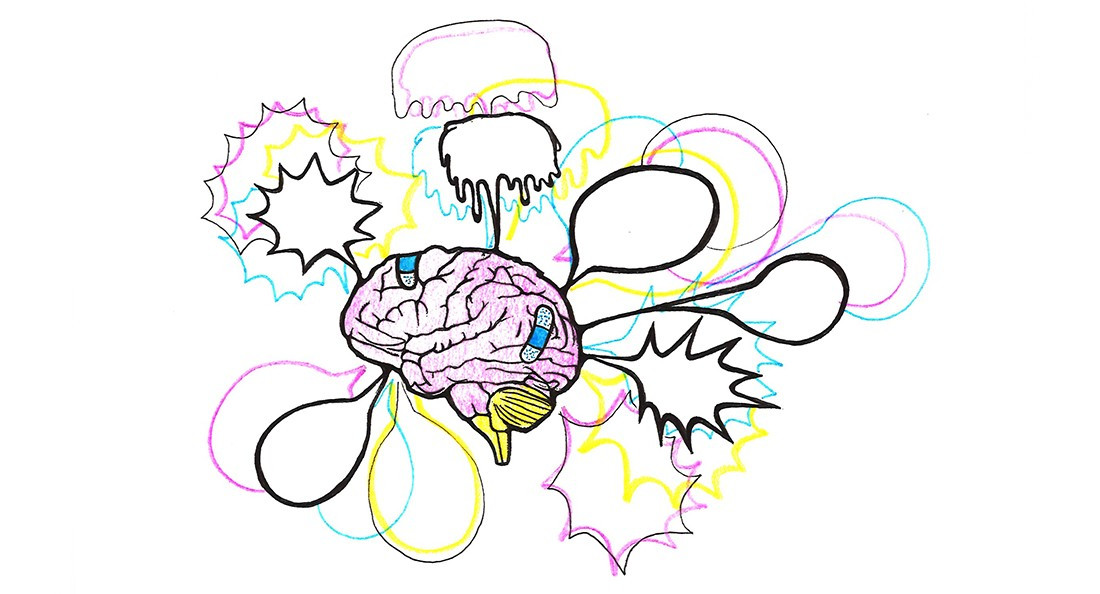Understanding the case of Vince Li and why he is free
How Vince Li was betrayed by his own brain chemistry
As someone whose brother suffers from schizophrenia, I’ve paid close attention to the trial of Vince Li - a man who has since changed his name for the sake of anonymity. The public discourse around the trial has been disheartening, although I do recognize that it largely stems from ignorance rather than malice.
We live in a society in which people are taught CPR in high school, yet next to nothing is taught about anxiety, depression, bipolar disorder, schizophrenia or many other serious mental illnesses – as if this information were not as life-saving as CPR.
I too used to think of Vince Li in an extremely negative light. But when I realized just how deeply my brother was suffering from schizophrenia, I was forced to confront and learn about the illness. Since then I have been unable to think of July 30, 2008 with hatred in my heart – only an unquantifiable sadness.
As I see it, the two main sources of outrage over Vince Li’s trial is the public’s lack of understanding in regards to mental illness and a general ignorance of how Canadian law operates.
When someone is afflicted by schizophrenia, one of the main, and most dangerous, symptoms they suffer from is psychosis, a serious but treatable medical condition that affects the mind. It causes one to lose contact with reality, and will often cause one to experience hallucinations and delusions that the individual will believe with absolute certainty are real and true.
On July 30, 2008, when Vince Li killed and dismembered Tim McLean on a Greyhound bus, he truly believed that he had just saved the world; that he had been sent by God to kill a demon that threatened not only his own life but also the lives of others.
He could have never expected the reality that awaited him outside that Greyhound bus; he probably expected to be met as a hero. Vince Li was betrayed by his own brain chemistry.
In Canada, two elements are necessary to convict someone of murder: actus rea (the guilty act), and mens rea (the guilty mind). This means that someone must literally commit the act of the crime, and they must also be in a state of mind to consciously and willfully intend to do so, in order to be found guilty.
Convicting someone for only thinking about committing an illegal act, without them actually taking any action to do so, would be an example of thoughtcrime, something straight out of the famous dystopian novel 1984, by George Orwell.
On the other hand, convicting someone for an act that they had no conscious knowledge or control over would be barbaric, and in Canada, we don’t punish people for doing something they have no control over.
In Canada we have legislation in place that would acquit someone, or label them as not criminally responsible (NCR) for their actions, if mens rea was not present in an illegal act. This is the same line of reasoning that would protect you if you broke the law while sleepwalking.
When Vince Li committed the act that he did he had been suffering from undiagnosed schizophrenia, and was in the throes of a psychosis-induced episode. His own brain chemistry was failing him. His brain was lying to him and convincing him of a reality that was not true.
Since that time, Li has undergone nearly nine years of psychiatric treatment, and his team of doctors and mental health workers have stated that he is a model patient. It is because of Li’s ardent commitment to treating his illness that he has recently been granted an absolute discharge by the Manitoba Criminal Review Board, as of Feb. 10.
The main thrust of most people’s concern, in regards to Li’s absolute discharge, seems to be the question “what if he decides to stop taking his meds?”
First, Li has already stated he is open to voluntarily having his medication monitored. On top of that, the chances of being killed by someone who has been deemed not criminally responsible are lower than your chance of being struck by lightning.
Furthermore, it’s important to remember that Li has been under observation by psychiatrists since 2008, and no psychiatrist would likely ever go before a government board and recommend Li’s freedom unless that psychiatrist is willing to bet their professional reputation, and the public’s safety, on that individual’s future.
It does remain existentially true that Vince Li could go off his medication. It’s also existentially true that there’s nothing stopping you from driving your car into a group of people, yet that doesn't mean you will.
Now that Vince Li understands what he’s capable of when he goes off his medication, why on earth would he want to do that? It doesn’t make any sense to presume that he would willingly do so.
Try to imagine what Li went through when he “woke up” from his psychotic episode, when he realized that the reality he was operating under wasn’t true. When he realized the true magnitude of the horrible and grotesque things he had done, because his brain had lied to him. Now ask yourself if this individual would really ever consider going off his medication?
It’s important to understand the difference between “Vince Li suffering from psychosis” and “Vince Li.” And it’s just as important to understand the difference between Vince Li before July 30, 2008, who didn’t understand his illness, and Vince Li now, who has all the reason in the world to understand, and treat, his illness.
Justin Sarides is a student at the University of Winnipeg, and an advocate for empathy and reason.
Published in Volume 71, Number 21 of The Uniter (February 22, 2017)








